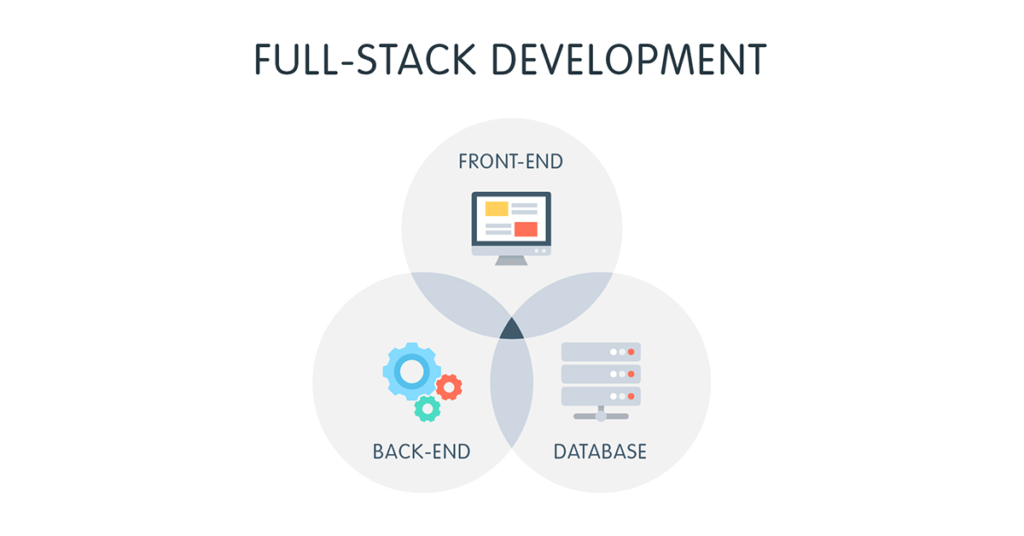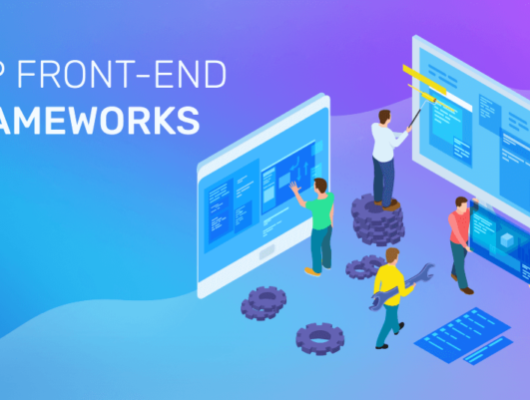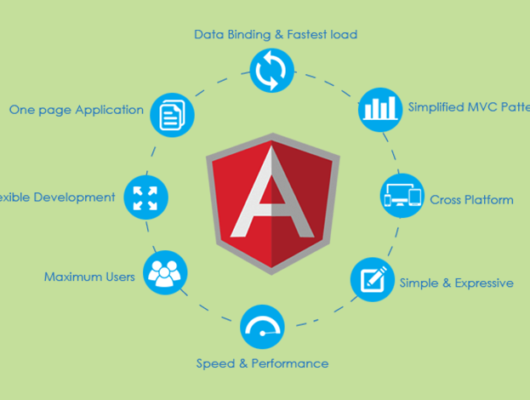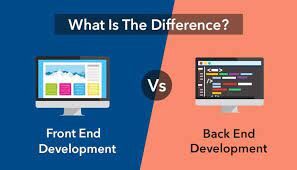Web development encompasses the creation and management of websites and web applications, utilizing programming languages such as HTML, CSS, and JavaScript. Developers focus on ensuring both the functionality and visual appeal of these sites across various devices, specializing in front-end, back-end, or full-stack development. Collaboration and adaptability play pivotal roles in this domain.

How to Become a Web Developer?
how you can become a Web Developer in just 12 weeks?
To become a Web Developer in a short span of 12 weeks, it requires a focused approach and dedicated learning. Web development involves creating, managing, and maintaining online websites and applications. It encompasses tasks such as web design, programming, and database management.
Key tools used in web development include HTML, CSS, and JavaScript. These programming languages serve as the building blocks for constructing websites. Additionally, there are various tools and programs available that streamline site construction, reducing the need for manual coding.
The path to becoming a Web Developer involves immersing oneself in learning these languages and their applications within the web development sphere. Dedication to mastering these fundamental tools and exploring their practical uses is crucial to becoming proficient in this field within a limited timeframe like 12 weeks.

What Exactly is Web Development?
Web development and web design are closely linked, though they encompass different aspects of creating websites and applications. Web development primarily involves the construction and programming of these digital platforms. Developers use coding languages to build and ensure the functionality of websites and apps.
Distinct from design, web development focuses on coding and programming tasks. It involves the technical implementation of features and functionalities, ensuring smooth operation through various programming languages. While design concerns itself with the visual and user interface aspects, web development handles the technical backbone that powers these digital creations.
What Are the Most Common Programming Languages?
Certainly! In the realm of web development, the most frequently used programming languages are:
- HTML (Hypertext Markup Language)
- CSS (Cascading Style Sheets)
- JavaScript
Types of Web Development
Absolutely! The primary programming languages extensively used in web development include:
- HTML (Hypertext Markup Language)
- CSS (Cascading Style Sheets)
- JavaScript
What Is Front-End Development?

Sure, here’s a revised version:
“Front-end development encompasses the user-facing aspect of web development. Typically, it refers to the segment of a site, application, or digital product that users engage with. A Front-End Developer is responsible for the visual and interactive aspects of a digital product, often dubbed Web Designers due to this focus.
Front-End Web Developers translate design concepts into code, acting as a liaison between design and technology. They need a strong grasp of programming languages such as HTML, CSS, and JavaScript, alongside frameworks like React, Bootstrap, Backbone, AngularJS, and EmberJS.
Their responsibilities include crafting responsive websites that perform well across devices, conducting thorough website testing, addressing detected bugs, and ensuring SEO-compliant site structures.
Front-End Developer Jobs:
In the realm of front-end development, there exists a variety of job titles catering to diverse skill sets and experience levels:
- Front-End Developer
- Front-End Engineer
- CSS/HTML Web Developer
- Front-End Web Designer (often entailing visual and interaction design)
- Front-End User Interface Developer (focusing on interaction design skills)
- Mobile Front-End Web Developer
- Front-End SEO Expert (with expertise in integrating SEO strategies)
- Front-End Accessibility Expert
- Front-End Dev Ops
- Front-End QA (encompassing unit testing, functional testing, user testing, and A/B testing)”
What Is Back-End Development?

“Back-End Developers focus on the operational aspects of a digital product, contrasting with the visual responsibilities of Front-End Developers. They construct the fundamental structure of a website and maintain its functionality, ensuring seamless performance. Their tasks involve managing database interactions, user authentication, server configurations, network settings, hosting, and implementing business logic. This specialization concentrates on server-side operations, guaranteeing that systems uphold the expected application functionalities.
Their core duty lies in ensuring the website’s functionality, responsiveness, and speed. This requires expertise in building servers using modern frameworks, creating custom APIs, serving static content, and managing data on web servers.
Back-End Developers primarily work with server-side programming languages such as PHP, Ruby, and Python, employing tools like MySQL, Oracle, and Git to manage data effectively.”
What Is a Full-Stack Developer?

“A Full-Stack Developer possesses expertise in both front-end and back-end development. They boast a wide-ranging understanding of multiple programming languages, often taking on leadership roles due to their versatility, covering various aspects of development. These professionals are adept at handling diverse development layers, earning them a sought-after position in the tech industry – Indeed’s study ranks Full-Stack Developers as the fourth-most in-demand job.
There’s some contention surrounding this title due to its generalist nature. Some specialists in front-end or back-end development question the idea of mastering both, often invoking the phrase ‘jack-of-all-trades, master of none.’
Despite this skepticism, an increasing number of tech experts identify themselves as Full-Stack Developers. According to a recent survey on Stack Overflow, 48.2 percent consider themselves proficient in Full-Stack Development.
The industry’s demand raises questions about whether Developers are expected to possess a broader skill set or if they’re taking the initiative to comprehend both front-end and back-end functionalities. Regardless, aspiring Developers are increasingly encouraged to establish a foundation in both domains.
Software Engineer and Tech Writer Muhammad Anser recommends focusing on acquiring proficiency in both front-end and back-end development initially, allowing for specialization later.
The projected 15% growth for Developers until 2026, exceeding the average rate, suggests an excellent time for individuals interested in exploring web development.”
Web Development vs. Web Design

Though there is overlap, there are also key differences between web development and web design. Let’s take a closer look:
Web Designers:
- Create everything a user sees on a website or software product, including all visual, color, typography, and usability elements
- Work directly with a client to create designs or work as part of a team to develop client vision
- May need knowledge of a programming language or some coding skills, or at least some level of familiarity with widely used languages such as HTML, CSS, PHP, and JavaScript
- Create wireframes and prototypes to test design ideas, offer input on design logos, branding, company style guides
Web Developers:
- Write the code that makes a website function, whether they work on the front end or back end (server-side)
- Create or implement designs demanded by a client or created by a design team
- Need expert-level knowledge of a variety of programming languages, including HTML (HyperText Markup Language), CSS, PHP, and JavaScript but also extending to other languages (Ruby, C/C++, Python), frameworks, and libraries
- Rarely create mockups, select typography, or pick color palettes
What Does a Web Developer Do?
BrainStation’s Web Developer career guide is intended to help you take the first steps toward a lucrative career in web development. Find out more about what a Web Developer does.
Become a Web Developer
Speak to a Learning Advisor to learn more about the Web Development Bootcamp and how you can become a Web Developer in just 12 weeks.
A Web Developer is responsible for programming code that tells websites and web applications how to operate. Web Developers typically specialize in either “front-end” (“client-side”) development or “back-end” (“server-side”) development. Some versatile and highly-sought-after professionals do both, and they’re called “Full-Stack Developers.”
Web Developers implement designs, optimize performance, and test across devices. They use languages like JavaScript, HTML, CSS, collaborating extensively.
What Is a Web Developer?
A Web Developer creates, designs, builds, and maintains websites, software, and web applications. Web Developers build websites by using programming languages like HTML, CSS, and Javascript to write code and convert a web design – created by the programmer or a design team – into a professional website, product, or mobile application.
If a Web Developer performs their job correctly, the website should not be so simple that it does not appeal to advanced users, but it also shouldn’t be so complex that a beginner user gets lost or frustrated using the site.

What Does a Front-End Developer Do?
Front-End Web Developers typically focus on the visual and design elements of websites and can anticipate and fully appreciate user needs and behavior. As the name suggests, front-end (or client-side) development involves the programming of what will be visible to the user. Languages like JavaScript, CSS, and HTML are widely used by Front-End Developers.
Because front-end development is responsible for what you can see on a website, it’s often confused with web design. Although Front-End Developers don’t design websites, they are the link between design and technology that can turn an idea into an interactive web page.
Front-End Developer Responsibilities
Here are some of the basic tasks that a Front-End Developer may be responsible for:
- Working with Graphic Designers, UX Designers, or Web Designers to help ensure design ideas can be made into a website that is easy to use
- Transforming design (sketches or wireframes for a website) into code that a web browser can read and display on your screen
- Structuring a website so that it is easy to find through a search engine (this is part of Search Engine Optimization or SEO)
- Developing websites that work and look good on any screen, from 24-inch computer monitors to five-inch smartphone screens (this is called responsive design)
- Testing websites and fixing bugs or other issues
What Does a Back-End Developer Do?
Back-End Developers work on behind-the-scenes systems and structures that are not visible for users but which allow the application to perform what’s needed. Specialists in back-end development tend to be skilled at problem-solving and logic and work with a variety of computer programming languages such as Python, Ruby, and SQL.
Back-End Web Developers can also choose to specialize in mobile application development and work primarily on Android and iOS apps. Using languages like HTML5, C++, and Java, a Back-End Web Developer who focuses on app development would need to take a few different approaches into consideration such as swiping functionality, scrolling dimensions, and other standardized app design elements.
A typical day for Web Developers presents a varied landscape shaped by diverse clients, web-based products, and the spectrum of front-end and back-end specialties. Their roles can encompass a multitude of tasks, marking the uniqueness of each day and making it a compelling aspect of this profession.
Daily responsibilities of a Web Developer :
- Converting wireframe designs into functional code
- Crafting a website’s structure and content
- Integrating features for functionality and adaptability
- Launching websites
- Maintaining and upgrading existing sites
- Debugging and resolving issues
Web Developers engage in collaborative efforts during team meetings, code troubleshooting, mentoring junior members, and project management, fostering team synergy and skill development.
What qualities define a proficient Web Developer?
Beyond technical prowess, successful Web Developers possess various attributes essential to their role. While coding skills are pivotal, a genuine enthusiasm for continuous learning and experimentation in code refinement is equally vital.
Adaptability is crucial due to the unpredictable nature of coding tasks, demanding swift responses and context switches when encountering project challenges. Additionally, complementary technical skills like graphic design and UX design bolster a developer’s toolkit.
Contrary to the perception of the role’s technical focus, soft skills are equally vital for Web Developers. Critical thinking, adept problem-solving, and the ability to balance holistic perspectives with intricate details are pivotal. Moreover, being open to seeking guidance when navigating coding hurdles and aligning with project expectations is key.
Empathy stands central, as successful developers understand the user-centric nature of software. Effective communication skills, both with clients and teams, facilitate seamless collaboration and comprehension of stakeholder needs.
Being a lifelong learner is foundational in tech, given its dynamic nature. Constant evolution necessitates staying updated with emerging technologies. A survey by BrainStation highlighted the industry’s inclination toward continual digital skills enhancement, with 80 percent of developers expressing a need for further training, emphasizing the industry’s fluidity and the desire for growth.







